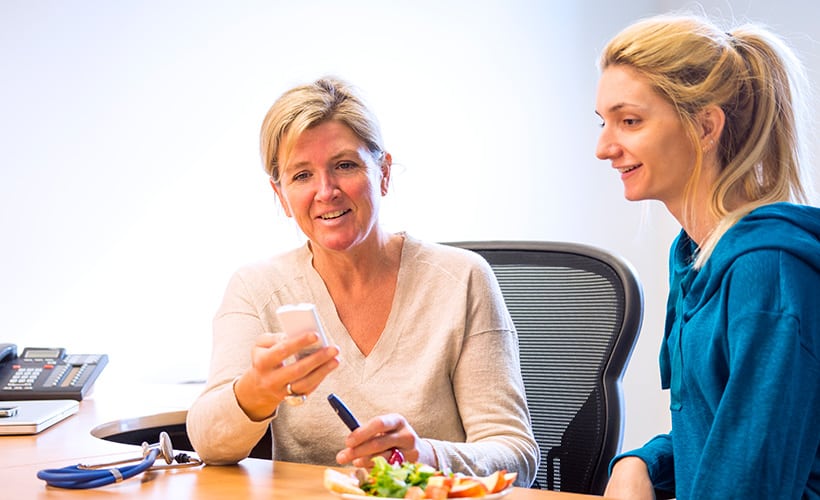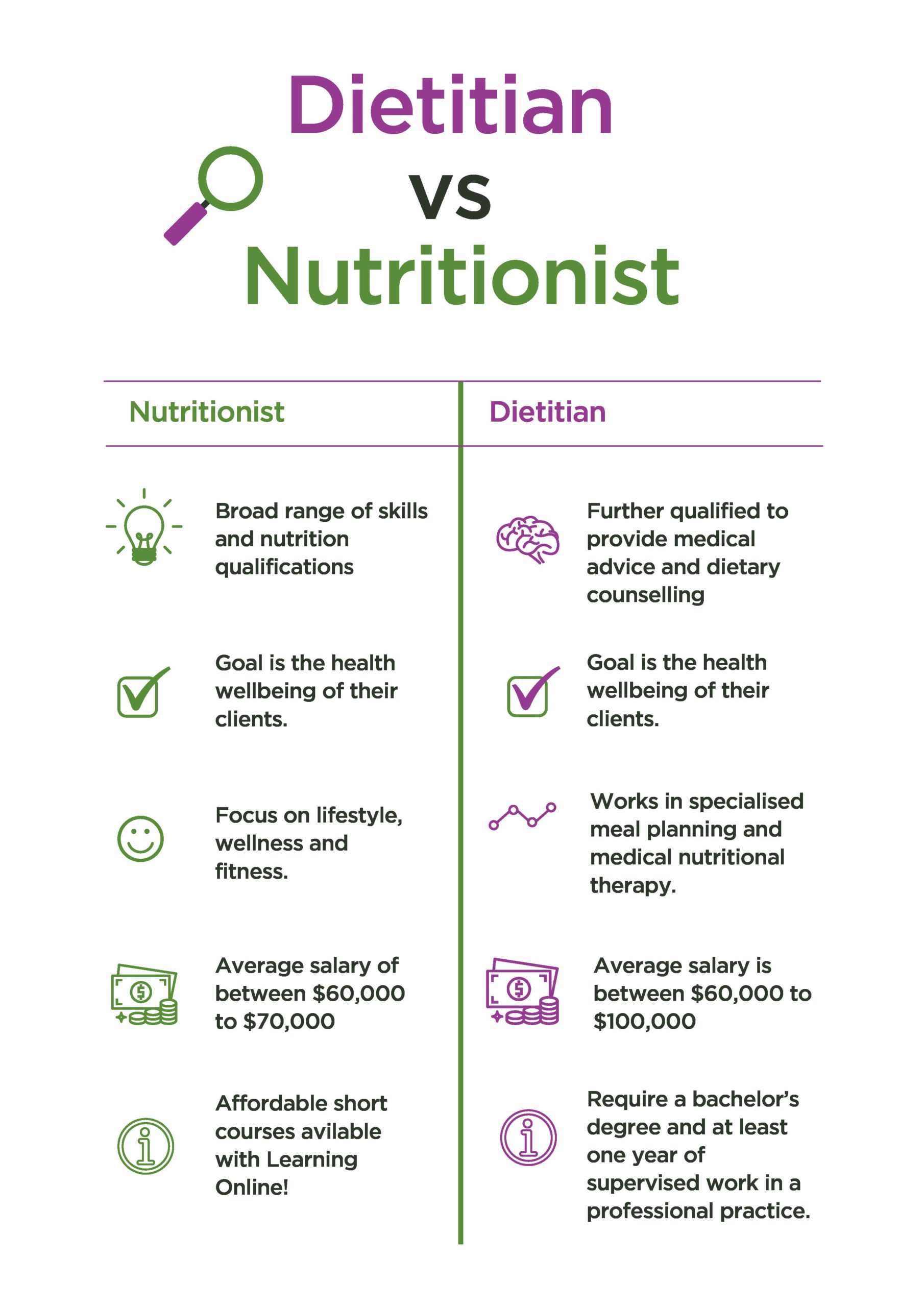All Categories
Featured
Table of Contents
-1
In the USA and many other nations, a dietitian is a board-certified food and nutrition professional. They are very enlightened in the field of nourishment and dietetics the scientific research of food, nourishment, and their effect on human health. With substantial training, dietitians get the expertise to provide evidence-based medical nutrition therapy and dietary therapy customized to fulfill an individual's demands.
-1To clear up, the qualifications of RD and RDN are interchangeable. However, RDN is an extra current designation. Dietitians can pick which credential they prefer to make use of. To gain these credentials dietitians-to-be must first earn a bachelor's degree or equal credit reports from an accredited program at an university or college. Commonly, this needs an undergraduate scientific research degree, including courses in biology, microbiology, natural and inorganic chemistry, biochemistry and biology, makeup, and physiology, along with even more specialized nutrition coursework.
Professional Nutritionist (Landsdale 6065)
-1This permits them to examine intense needs, prioritizing dangerous problems. Inpatient and outpatient dietitians additionally supply nourishment education to individuals with specialized requirements, such as those freshly out of surgery, in cancer cells therapy, or identified with chronic illnesses like diabetes or kidney condition. In the outpatient setup, they give extra comprehensive nutritional counseling functioning towards a nutrition-oriented goal.
-1They can likewise advocate for public laws with a focus on nutrition, food, and wellness concerns. Research dietitians commonly work in research study hospitals, companies, or universities. They run within a research group headed by a main private investigator and execute nutrition-focused treatments. Once dietitians have actually gained their qualifications and are working in the area, they can go on to focus on a specific subcategory, such as pediatric medicines or sporting activities dietetics.
-1Others might work as health and nutrition experts in media or as public audio speakers (Healthy Eating Plans). Dietitians are certified to take care of nourishment treatment throughout a span of acute and chronic conditions.
Holistic Dietitian – Landsdale
-1In numerous states, such as Alaska, Florida, Illinois, Maryland, Massachusetts, and Pennsylvania, RDs and CNSs are provided the very same state certificate, normally called a Licensed Dietitian Nutritional Expert (LDN) license. In states that do not regulate using this term, anyone with a passion in diet regimen or nutrition may call themselves a nutritionist.
-1Since uncredentialed nutritional experts normally do not have the knowledge and training for medical nourishment therapy and nutrition therapy, following their recommendations could be considered unsafe (). Prior to speaking with a nutritionist, you may want to examine whether your state controls who may utilize this title. In the united state states that don't regulate the term, no degrees or qualifications are needed to be a nutritionist.

-1
In states that do mandate licensure, the CNS or RD credential may needed. Those with CNS credentials are health professionals like registered nurses or medical professionals with innovative wellness levels that have actually looked for additional coursework, completed supervised method hours, and passed a test managed by the Board for Accreditation of Nourishment Specialists.
-1While several of these strategies may have robust clinical backing, others may not. Offering nutrition recommendations without the proper understanding and training can be unsafe, particularly when counseling those with wellness problems. If you are thinking about consulting a nutritionist, you might want to ask if they are a CNS or have state licensure or certification, or another credential.
Functional Dietitian ( Wanneroo)
-1Numerous states particularly control this term. Furthermore, nutritional experts might seek a sophisticated CNS certification.
-1It can be challenging to help individuals make real, lasting modifications in their lives. Both dietitians and nutritional experts give a variety of nutrition-based solutions to clients.
-1They must have completed some level of education in their field. They are also called for to have completed approximately a year of supervised work, working within a directed program at a healthcare center, providing company, or area body. Dietitians have far greater assumptions put on their capacities and level of professionalism and trust.
-1This suggests that there is no body that manages their credentials and no specifically rigorous standards that nutritionists need to adhere to in order to be able to practice. Dietitians, on the other hand, are registered with across the country acknowledged bodies, such as the Dietitians Association of Australia. They must follow by the National Competency Standards for Dietitians.
Meal Planning – Wanneroo

-1
You can exercise as a nutritional expert without the exact same degree of certification as a dietitian. Nutritional expert courses can differ in size and high quality, with some as brief as six weeks and covering far much less content than a dietetics training course. Depending upon your education and learning supplier, you can gain a substantial quantity of understanding with studying a simple nutrition program; nonetheless it's vital to investigate the course content before commencing.
-1This can consist of going to industry workshops or checking out sector magazines. Nutritionists, on the other hand, usually gain their credentials in order to supplement other credentials and provide much better suggestions to their customers. Nutritionists can acquire work in a vast array of fields, including public health and wellness advice, advice for individuals, and functioning with personal organisations.
-1Nutritionists can deal with showing off organisations, fitness centers, schools and suggest media electrical outlets on standard terminology and correct use of terms. Commonly, people will seek the services of a nutritional expert to assist them in getting right into form. Dietitians can work in a lot of the exact same roles as nutritional experts. With a higher level of certification, they can quickly get in a duty that a nutritional expert would hold, supplied they are otherwise equal.
Functional Nutritionist
-1Dietitians commonly function with even more medically sensitive customers. Due to the fact that of the high degree of expertise required to give services to these people, only approved dietitians are allowed to supply treatment.
-1In Australia there is a distinction in between a dietitian and various other dietary wellness companies consisting of nutritionists. All dietitians are nutritional experts, but nutritionists without a dietetics qualification can not call themselves a dietitian. While there are resemblances in between a dietitian and nutritional expert there are distinctions in qualifications and guideline. The dietetic career is controlled and meets rigorous criteria as laid out by the National Partnership of Self Regulating Health Professions (NASRHP).
-1Dietitians with the Accredited Practising Dietitian (APD) credential dedicate to continuous training and education throughout their professions. They abide by our standard procedure. Dietitians have the expertise and abilities discovered in the National Competency Requirements for Dietitians. As a profession, nutritionists are not managed in Australia under NASRHP or licensed under a single regulatory body.
Clinical Dietitian – Landsdale 6065
-1If you have a chronic health and wellness problem and a care strategy from your general practitioner, you might be able to declare a Medicare discount when you see an APD. Discover more regarding aid with prices when seeing a dietitian. The major purpose of individuals operating in the career of dietetics is embodied in this statement: The profession of dietetics contributes to the promotion of health and wellness and the avoidance and therapy of disease by optimizing the nourishment of populaces, neighborhoods and individuals.
Latest Posts
Rachel Svenson – Mount Hawthorn 6016
What Is The Difference Between A Dietitian And A Nutritionist? – Canning Vale
Microbi Me Mayhem – Perth